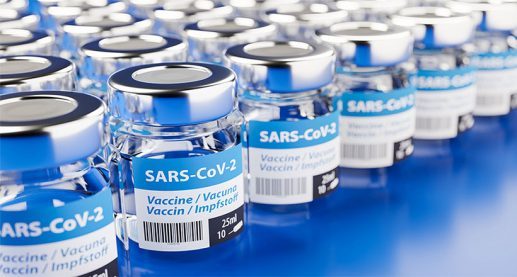Comparing the Covid-19 Vaccines

April 22, 2021
At this stage in the pandemic, several vaccines have been developed and FDA certified. The lack of knowledge of vaccinations and the hastened process through its development have caused anxiety and general confusion. Which vaccine should I choose?
The top 3 vaccinations which will be discussed are the Pfizer vaccine, Moderna, and Johnson & Johnson.
The Pfizer vaccine was the 1st vaccine to be FDA approved on December 11, 2020. It was authorized for emergency use in the U.S. and other countries. It is 95% effective and recommended for people 16 years and older. The vaccine has strict storage requirements of -94 degrees Fahrenheit and a two dosage requirement 21 days apart from one another. The common side effects include chills, headache, pain, tiredness, and/or redness and swelling at the injection site, all of which generally resolve within a day or two of rest, hydration, and medications like acetaminophen.
The Moderna vaccine was the second vaccine to be FDA approved on December 18, 2020. It was authorized for emergency use in the U.S. and other countries. It is 94.1% effective and recommended for people 18 years and older. The vaccine can be stored long-term in standard freezer temperatures, thus making it much easier to distribute and administer compared to Pfizer. It has a similar efficiency (only .9% less effective) making it a well-rounded option for effectivity and distribution requirements. The dosage is two shots, 28 days apart from each other, and its common side effects include chills, headache, pain, tiredness, and/or redness and swelling at the injection site, all of which generally resolve within a day or two.
The Johnson & Johnson vaccine was the 3rd vaccine to be FDA approved on February 27, 2021. It was authorized for emergency use in the U.S. and other countries. It has a 72% overall effectivity and an 86% effectivity against severe disease. It is the easiest to distribute and administer and can be stored at refrigerator temperature. This is an advantage as many people need to be vaccinated to achieve herd immunity. It is a single dose, and the common side effects include fatigue, fever headache, injection site pain, or myalgia (pain in a muscle or group of muscles), all of which generally resolve within a day or two.
Each person will have their own preference regarding vaccines. With further research into a vaccine of choice, vaccination will become a less intimidating process.











